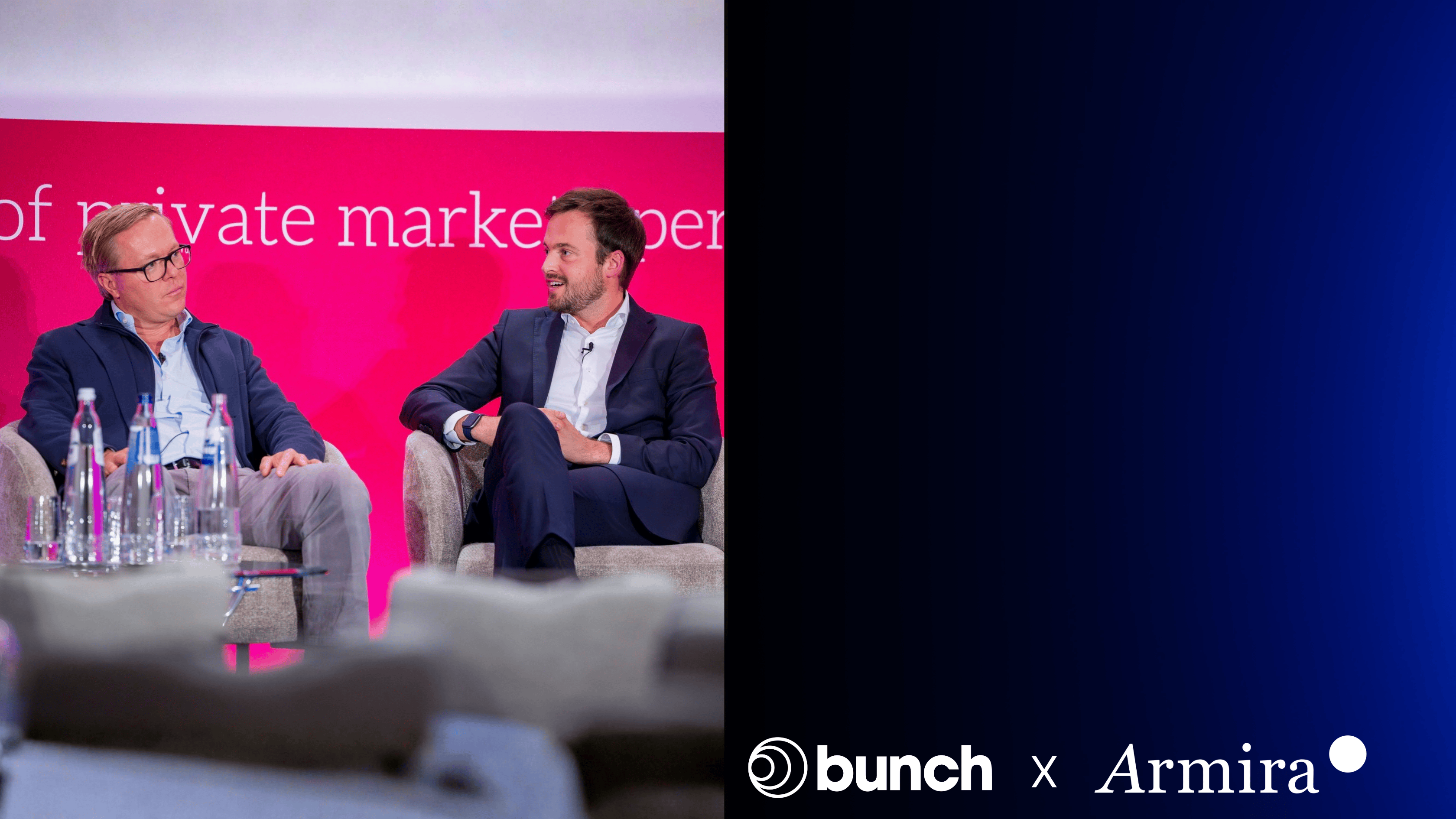Contents
Today, we are announcing Scout Programs, our new product helping VCs to set up and manage their own scout programs with ease. In this article, we'll dive into what scout programs are, why they exist, how to best set them up, and what role SPVs are playing in structuring investments.
Introduction
VC Scout Programs have been around for more than a decade now. First implemented by Sequoia in 2009 with their “secretive” program, the benefits of scout programs are not so secret anymore. Household names like Lightspeed, Accel and many more have implemented them in different formats. What started in the US spilled over the Atlantic and is becoming more and more mainstream in Europe.
Before we do a deep-dive on Scout Programs, let’s zoom out a little: private markets have been affected by major secular trends. As a general theme, value creation is increasingly captured earlier - what many refer to as the seedification of private markets, and the centers of gravity have shifted - referred to as decentralization. Former growth stage funds looking heavily into earlier stages and the emergence of sector specific (micro-)funds, solo GPs and easier ways to create syndicates (e.g., through the bunch OS - sorry, not sorry) increase the level of competition for the best deals at pre-seed and seed stages.
Now back to Scout Programs, while the current macro environment might tempt VC leaders to cut seemingly “nice-to-have” initiatives like Scout Programs, they are more relevant than ever and key to remain competitive in an increasingly contested VC market.
What even is a Scout Program?
Starting with the protagonists, Scouts are usually (former) operators, i.e, founders running startups, recently exited startups, senior employees of scale ups or community leaders. The common denominator is these are individuals who are well-connected, have exposure to interesting people and ideas, unique insights into specific industries and a desire to pay-it-forward - supporting the next generation of founders. The main function of Scout Programs is to enable those individuals to support VCs in finding and funding the most promising companies out there.
To start a Scout Program, VC funds need to define the purpose of their Scout Initiative. They can have many objectives (see benefits below) and recruit the most relevant scouts accordingly. They need to make decisions about the scope. What is the level of freedom scouts should have, e.g., are certain sectors restricted, is there an approval process in place? If an investment decision has been made, how are the deals structured? What is the budget for each scout? The range can be between 30k to EUR 500k to allocate in a number of startups, the average ticket sizes vary between EUR 5k and 100k. Lastly, they need to think about how to incentivize scouts. Scouts can expect to receive a commission or shares, which can take different forms including carry on the scout's portfolio and/or carry on the total “scout pool” - so if one scout does well, all win. Some funds encourage the scouts to co-invest with their own money, while others limit this possibility.
What are the benefits of Scout Programs?
Deal flow. The most obvious one: Scouts are connectors who can help to find hidden gems and put a foot in the door before anyone else. Scouts provide vast networks and decentral intel. Especially for later stage funds it is important to have touchpoints with the most promising founders early on. Seedification is real.
Value add. Because of the increasing competition, only money and a great reputation is not enough for the most promising founders. They want operational experience. They want individuals on their side who have been on a startup journey themselves.
Diversity. The mini-me effect, i.e., the unconscious biases to favor founders who are similar to the investor, leads to subpar investment decisions. Scout programs are an excellent way to fight those biases and fund more underrepresented and diverse founders.
Expansion. If VC funds want to expand geographically or look into new verticals, Scout Programs are the best way to go about this. Not only do they give access to decentral networks, overcome knowledge gaps, but also spark vibrant angel communities in smaller hubs.
Pay-it-forward. Many large funds express their main motivation as supporting the ecosystem and empowering portfolio founders to invest and create their own track record.
The special case of Europe
The European ecosystem has clearly matured over the last few years, many renowned US funds have started operations in Europe, relying on Scout Programs for the market entry, increasing the competition even further. But the European ecosystem is still nowhere near the US maturity and far from its full potential. Scout programs bring the potential to accelerate the investor journey, i.e., supporting operators on the ground to build on their network and knowledge to become investors who in turn fuel the next generation of founders and investors of tomorrow.
The European pioneers have been predominantly UK-based. Why is it that Scout Programs are not everywhere given that they could be game changing for local investment and the European ecosystem as a whole? This is a question Roxanne Varza, a European Sequoia Scout, raised in her Sifted article back in 2020.
Why are Scout Programs still rare?
It was not hidden in this blogpost - Scout Programs are powerful, but launching them is not without its challenges. The anglo-saxon world is generally less strict in terms of regulatory demands which could explain the US and UK dominance, at least to some degree.
The most significant bottleneck in setting up a scout program is creating a structure that appropriately incentivizes scouts. While free or perks-based options may work for some, the more enticing option for scouts is to really take part in the investment, i.e., creating their own portfolio and having their name on the entity. However, structuring an investment for a particular deal with a new stakeholder within an existing fund can be complex. In many cases, this requires the creation of a special purpose vehicle (SPV), which is often used by funds to compartmentalize investments, monetize pro-rata rights, pool smaller LPs, and to invest in startups that do not align with their mandate. However, creating and managing SPVs can be both costly and time-consuming as they require significant legal expertise, stakeholder orchestration and involve a significant amount of admin paperwork.
Additionally, these programs require a lot of time and attention from investors to coordinate 10-20 scouts, which means significant allocation of internal resources. The process from deal sourcing to investment decision-making is really fragmented in endless email exchanges. On top of that keeping track of investments currently happens through a combination of spreadsheets at best.
These challenges really hurt and make VC Scout Programs daunting and unattractive for many, especially smaller VCs who could largely benefit from them.
We built the Solution
At bunch, we are focused on developing an operating system for private market investing. By working closely with funds and their managers, we have realized the pain of implementing a straightforward, efficient, and cost-effective VC scout program. We are leveraging our expertise in SPV creation and combining it with our platform to introduce our latest offering - the Scout Program.
With bunch, managing your scouts is seamless. With our software-only solution, you receive deals in a structured format and access accurate investment data through a single source of truth in the bunch data room. Onboard and collaborate with your scouts to create investment memos and approve investments. With our full-stack scout program you can on top of that just as easily deploy capital within a few days using our standardized SPVs.
This fully integrated solution is just one example of how we are striving to create a fully-fledged suite of products for private market investors. To learn more about it, please contact us at hi@bunch.capital or visit our website to start your own scout program with bunch!
Disclaimer: The content presented herein is solely for informational and discussion purposes only. It is not intended to serve as legal, tax or financial advice or as an endorsement of any investment strategy. bunch does not provide legal, tax or financial advice. Readers should not base their investment decisions on the content presented herein or any other bunch-generated content alone and should seek appropriate professional advice. Nothing contained herein shall constitute or imply an offer to sell, purchase or enter into any transaction in respect of securities. The content contained herein is subject to change without notice. While we aim to present accurate and up-to-date information as part of bunch’s content, we undertake no obligation to update our content from time to time.
The best already build on bunch





























